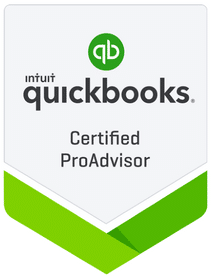- Patrick Roney
- (877) 503-8607
Follow Us :
Follow Us :
Proledge
June 22, 2012

When you hire a new bookkeeper, wouldn’t it be nice if you could start very slowly, dip a toe in the water, see if you like the work that your bookkeeper does and then progressively accelerate the pace of the work? Unfortunately, this is seldom practical as there usually is a backlog of work that needs to be caught up in short order. So, how do you protect yourself from sticker shock?
Finding a bookkeeper or a bookkeeping firm that you like is not an easy task. It seldom happens in a matter of days. Typically, by the time you selected and engaged the bookkeeper of your choice, the books have fallen behind and there is a lot of catch up work to do. Also, in many cases, one of the reasons you were looking for a new bookkeeper might be that the person in charge of the books before might not have done a very good job. So, not only there is a backlog of work, but there might also be some cleanup required.
All this conspires to flip your relationship with your bookkeeper on its head. Ideally, the first few weeks/months of work should be about your bookkeeper getting familiar with your business and you gaining confidence in your bookkeeper. You’d like to go on a slow jog to warm up before you start running all out. Unfortunately, most bookkeeping relationships start with a sprint: a heavy workload upfront under tight time constraints. If this is not done carefully, costs can creep up and the first invoice you will get from your bookkeeper will take you by surprise. How can you minimize this risk of sticker shock?
The task of a bookkeeper at the beginning of a relationship is a lot like peeling an onion. The bookkeeper won’t know what she doesn’t know until she dives into the details. Estimates are difficult to develop, but they are a necessary part of the process. The best approach is to allow the bookkeeper to refine the estimate as the work progresses. If you call a bookkeeper and ask for an estimate on the first call, without giving a chance for the bookkeeper to look at your QuickBooks files, your bank and credit card statements, your invoices and your bills, assume that this estimate will be very unreliable. As the bookkeeper gets more concrete information in hand, the estimates can become more accurate.
If you have a big backlog of work, don’t tell your bookkeeper: “Go ahead. Catch me up. Call me when it’s done”. This is a recipe for surprises, sticker shocks and inaccurate books. A better approach is to agree with the bookkeeper to catch you up with a month’s worth of data and stop. At that point, the bookkeeper will have a list of questions that you can help clarify. It’s also the right time for you to pass the books by your CPA and ask to check if the work is done to his/her expectations. You don’t want your bookkeeper to go in the wrong direction for a long time, because the later you find out about the disconnect, the more expensive the adjustments will be after the fact. Your bookkeeper may have the best intentions in the world, but if she was assuming that you wanted the train to go on Track A whereas you or your CPA wanted her to go on Track B, let’s not wait until the train arrived in the wrong town to find out about the disconnect.
Receiving invoices from your bookkeeper is not necessarily the most pleasant part of the relationship, but invoices are critical for your to understand what is going on. Since the beginning of your relationship is likely to be the most expensive one because of the backlog and cleanup work, don’t wait a month to request the first invoice. By then, it might be too late. You might discover that there was a large disconnect between you and your bookkeeper. Until you’ve reached a steady state, it might not be a bad idea to ask for weekly invoices. It gives you more real time visibility into your costs.
Most reasonable bookkeepers would tell you that, given a choice, they would prefer to start a relationship with a new client slowly and to progressively build a trusted relationship. Unfortunately, it is the nature of bookkeeping that the initial phases are often the most rushed and therefore the most prone to tensions and misunderstandings. If both parties are aware of this upfront and actively try to mitigate these risks of misunderstandings, it is already a huge step forward.


Fill out the form below to sign up to our Blog Newsletter and we’ll drop you a line when new articles come up.
Bookkeepers.
Professional. Affordable.
ProLedge is a bookkeeping services firm.
Copyright © 2024 All rights reserved.
Hello. Can we help you?